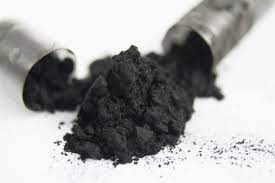
What is Carbon Black Plant
2024-08-12
Carbon black, a versatile material known for its deep black color, is a key ingredient in a wide range of industrial products. It is a fine black powder composed primarily of carbon, produced by the incomplete combustion or thermal decomposition of hydrocarbons. Carbon black is essential in various applications due to its properties such as reinforcing agents, pigments, and conductive materials. This article delves into the fundamentals of carbon black plants, their production processes, and their significance in the industry.
Overview of a Carbon Black Plant
A carbon black plant is a specialized industrial facility designed to produce carbon black from hydrocarbon feedstocks. These plants are integral to supplying industries with this crucial material. The primary goal of a carbon black plant is to convert raw hydrocarbons into high-purity carbon black using specific production methods. The plant's design includes several key components, such as reactors, filtration systems, and drying units, all crucial for efficient production.
Production Processes
The production of carbon black involves several methods, each tailored to produce specific types of carbon black with unique properties. The main methods include:
Furnace Black Process: This is the most common method, involving the combustion of hydrocarbons in a furnace. The process yields a high surface area carbon black used in applications such as tires and rubber products.
Thermal Black Process: In this method, hydrocarbons are heated in the absence of air to produce carbon black. It results in a lower surface area product, often used in plastics and coatings.
Acetylene Black Process: This process involves the thermal decomposition of acetylene gas, producing a highly conductive carbon black. It is used in applications requiring electrical conductivity, such as batteries and electronics.
Each production method has specific reaction conditions, including temperature, pressure, and feedstock composition. Equipment such as reactors, quench towers, and filter systems are employed to ensure the desired product quality.
Quality Control and Testing
Ensuring the quality of carbon black is critical for meeting industry standards and customer specifications. Quality control involves several methods, including:
Particle Size Analysis: Determines the distribution and size of carbon black particles, which affects its performance in various applications.
Surface Area Measurement: Indicates the amount of surface available for reactions, influencing the material's reinforcing properties.
Color and Tinting Strength: Assesses the intensity of the black color and its effectiveness as a pigment.
Testing techniques include electron microscopy, BET surface area analysis, and colorimetric measurements. Rigorous testing ensures that the carbon black produced meets the required standards for different applications.
Environmental and Safety Considerations
Carbon black production involves managing emissions and waste to minimize environmental impact. Key considerations include:
Emissions Control: Plants implement systems to capture and treat gaseous emissions, including volatile organic compounds (VOCs) and particulate matter.
Waste Management: Solid waste, including spent catalysts and by-products, is managed through recycling or safe disposal methods.
Safety Measures: Due to the nature of the materials and processes involved, strict safety protocols are in place to protect workers and prevent accidents. This includes proper handling of chemicals, regular maintenance of equipment, and emergency response plans.
Applications of Carbon Black
Carbon black's applications span various industries, driven by its unique properties:
Tires: The largest application, where carbon black enhances the strength, durability, and performance of tires.
Plastics: Used as a pigment and reinforcing agent in various plastic products.
Coatings: Provides color and improves the durability of paints and coatings.
Emerging Applications: Carbon black is also finding new uses in electronics, energy storage, and advanced materials.
Carbon black plants play a vital role in the production of this versatile material, supporting a wide range of industrial applications. Understanding the production process, quality control measures and market dynamics helps understand the importance of these facilities. As the industry develops and the demand for innovative applications continues to grow, carbon black plants continue to play a key role in meeting global demand and driving technological advancement in various fields.
Best Carbon Black Plant
If you want to get a high-quality carbon black plant, but don't know how to choose, you might as well try dery. As a professional carbon black manufacturer, dery can provide you with high-quality products and services. Welcome to contact us for detailed ordering information!

